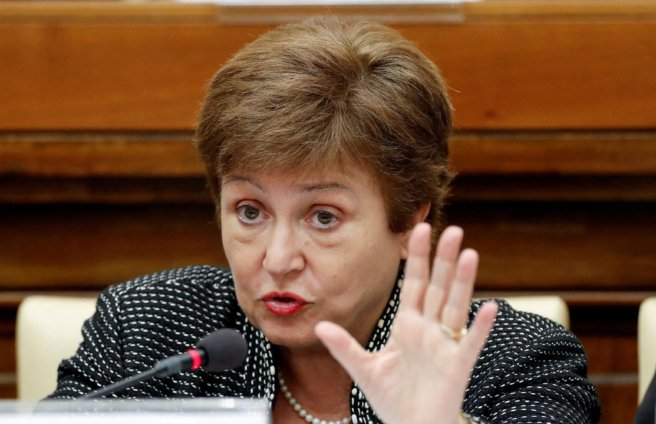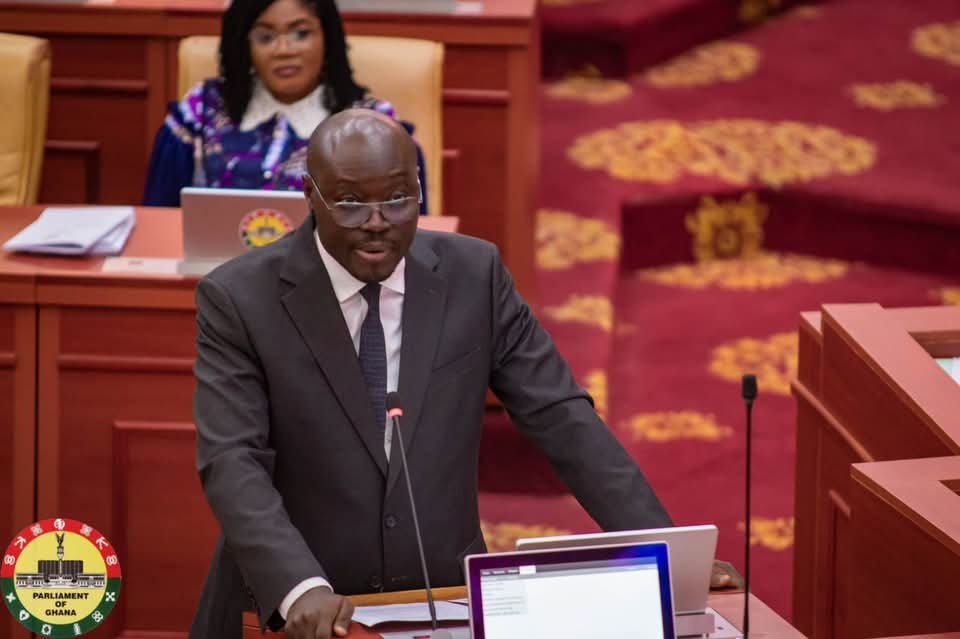Bussiness
Over 30% of countries at near-debt distress – IMF Boss

More than 30% of emerging and developing countries are at or near debt distress, Managing Director of the International Monetary Fund, Kristalina Georgieva, has revealed.
For low-income countries that number is 60%.
According to her, the tightening financial conditions and exchange rate depreciations has escalated the debt service burden which she described a harsh – and for some countries – unbearable burden.
Speaking at the hybrid meeting of the G20 Finance Ministers and Central Bank Governors, Madam Georgieva said the outlook of the global economy has darkened significantly, and uncertainty is exceptionally high, adding, “downside risks about which the IMF had previously warned have now materialised”.
She therefore wants a strong global leadership to tackle the scourge of high debt, which has reached multiyear highs.
“The war in Ukraine has intensified, exerting added pressures on commodity and food prices. Global financial conditions are tightening more than previously anticipated. And continuing pandemic-related disruptions and renewed bottlenecks in global supply chains are weighing on economic activity.”
“As a result, later this month, we will project a further downgrade to global growth for both 2022 and 2023 in our World Economic Outlook Update. Moreover, downside risks will remain and could deepen—especially if inflation is more persistent—requiring even stronger policy interventions which could potentially impact growth and exacerbate spillovers particularly to emerging and developing countries. Countries with high debt levels and limited policy space will face additional strains. Look no further than Sri Lanka as a warning sign”, she added.
Emerging and developing countries have also been experiencing sustained capital outflows for four months in a row. They now suffer the risk of reversing three decades of catching up with advanced economies and instead falling further behind.
3 priorities to navigate challenging environment
The MD of IMF said first countries must do everything in their power to bring inflation down, adding, “failure to do so could risk the recovery and further damage living standards for vulnerable people”.
She expressed excitement that central banks are stepping up their game.
“Monetary policy is increasingly synchronised: more than three-quarters of central banks have raised interest rates and have done so 3.8 times. Central bank independence is critical for the success of these policy actions, as is clear communication and a data-driven approach.”
Secondly, she said fiscal policy must help but not hinder central bank efforts to tame inflation.
“With growth slowing down, some people will need more support, not less. So fiscal policy needs to reduce debt while providing targeted measures to support vulnerable households facing renewed shocks, especially from high energy or food prices”.
Thirdly, Kristalina Georgieva said, a fresh impetus for global cooperation will be critical to confront the multiple crises the world is facing. We need G20 leadership particularly to address the risks from food insecurity and high debt.
Source: Joy Business
Bussiness
Ghana to host mining and minerals convention 2025 to shape future of gold industry

Ghana’s gold and minerals sector is set for a major spotlight as Meetings. Co, in partnership with key industry stakeholders, announces the Mining & Minerals Convention 2025, scheduled from August 26-27, 2025, at the Kempinski Hotel Gold Coast City, Accra.
Held under the theme “Shaping the Future of Ghana’s Gold Industry,”‘ the Convention will convene government leaders, regulators, miners, refiners, investors, sustainability partners, innovators, and responsible mining, and global competitiveness,policy experts to explore strategies that position Ghana’s gold industry for long-term growth.
The two-day convention will feature presidential and ministerial keynote addresses, industry thought leadership, technical paper presentations, policy dialogues, fireside chats, exhibitions, and high-level networking sessions.
Convention delegates can anticipate a dynamic and insightful experience, marked by thought leadership from leading policymakers and regulators, in-depth discussions on key topics such as sustainability, ESG, digital gold, and responsible sourcing, as well as valuable opportunities to forge public-private partnerships and investment deals.
Moreover, the event will offer practical action points aimed at unlocking greater economic value for Ghana.
The 2025 edition will be supported by a strong coalition of strategic partners, including the Ministry of Lands and Natural Resources, the Minerals Commission, GoldBod, the Minerals Income and Investment Fund (MIIF), and the Ghana Extractive Industries Transparency Initiative (GHEITI).
Bussiness
Finance Minister tranfers funds to DACF, NHIS and GETFUND

The Minister for Finance Hon. Cassiel Ato Forson has disclosed that a sum of nine hundred and Eighty-Seven Million, Nine Hundred and Sixty-Five thousand and Seventy-Three Ghana Cedis (GHS987,965,073.00) from the Consolidated Fund into the District Assembly Common Fund Account, being the first quarter amount due to the DACF.
Furthermore, the Finance Minister informed the House that a total amount of Two Billion, Thirty- Three Million, Four Hundred and Sixty-Nine Thousand, Six Hundred and Seven Ghana Cedis (GHS2,033,469,607) has been disbursed to the National Health Insurance Fund.
While the Ghana Education Trust Fund has also received a total of Two Billion, Seven and Ten Million, Two Hundred and Twenty-Seven Ghana Cedis (GHS2,710,227,947.00) for the months January, February, March and April,2025.
The Finance Minister disclosed this in his statement to Parliament on the payments to statutory funds on the floor of the House.
In addition, he cautioned that the Administrator of the District Assembly Common Fund is required to ensure that 80% of this amount is transferred directly to the Assemblies without fail and expenditure returns submitted to the Ministry of Finance before subsequent releases will be made.
He added that Members are encouraged to monitor the utilization of these amounts sent to their respective Assemblies in line with the approved guidelines by Cabinet.
In his closing remark, Ato Forson said he’s going to take the concerns of the House seriously.
For his part, the Majority Leader, Mahama Ayariga made known the President’s prioritization of women in the country stating that President Mahama is “Pro-women”.
This is due to the fact that women are going to be the core beneficiaries from the expenditures going to be made by the MMDA’s, he added.
The Minority Leader Alexander Afenyo-Markin questioned the Finance Minister why road contractors have not been paid for more than five months. He said the Minister must not be applauded for since the allocation of these funds were long overdue.






